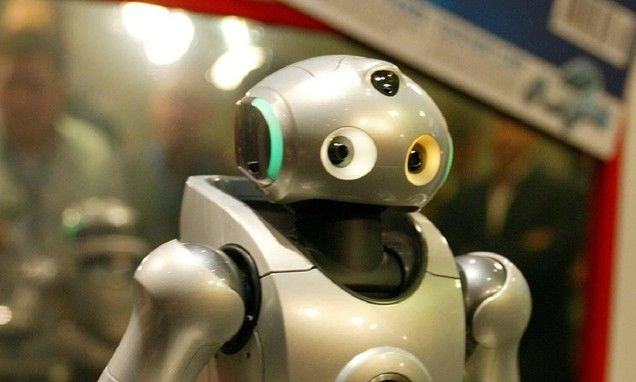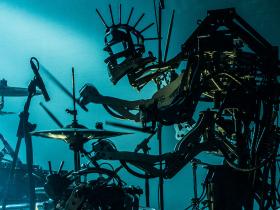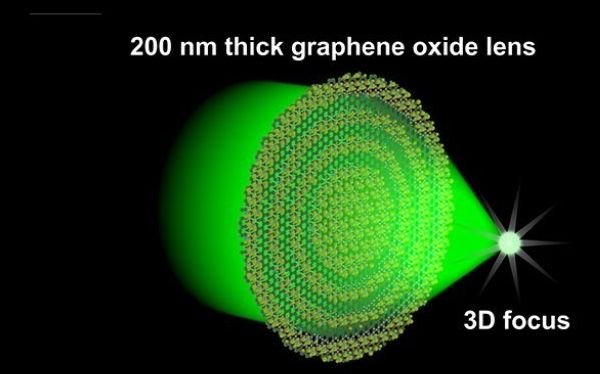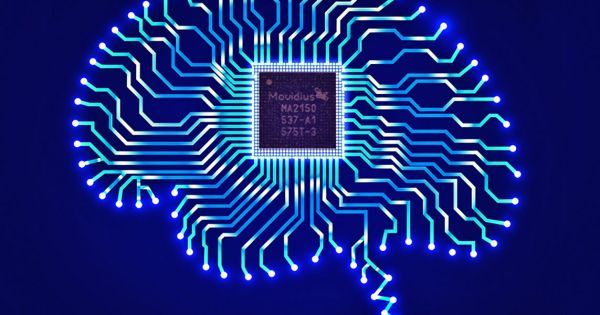Archive for the ‘computing’ category: Page 837
Feb 15, 2016
Machines could make half of humans unemployed in 30 years
Posted by Karen Hurst in categories: computing, employment, internet, neuroscience, robotics/AI, space

Frankly brainwashing tactics never worked with me. I am not sure what the media is up to; but this is truly become a bit ridiculous. Up until last week; the media and dooms day believers where telling everyone in the next 10 years; most of the jobs would no longer be held by humans. Until me and a few other folks on the web started sharing the facts on why that was not a reality. So, recently, the journalists new story is in 30 years most of the jobs will be taken by robots.
Again, we will settle down from the hype and learn that the reality is people will have jobs because new careers will be created plus some of the corporate and special skilled jobs that we have today have too much access to IP and other private information. And, this type of information most companies will want some level of human oversight managing the information and operations around it. Also, we will see that in order to keep creativity and real innovation moving forward that we will always need humans involved.
Continue reading “Machines could make half of humans unemployed in 30 years” »
Feb 14, 2016
Robots ‘will make majority of humans unemployed within 30 years’
Posted by Klaus Baldauf in categories: bioengineering, computing, drones, employment, robotics/AI, transportation
The pace at which robots and intelligent machines are able to take over the jobs traditionally performed by humans will result in more than half the population being unemployed within 30 years, an expert in computing has predicted.
While some may look forward to a life of leisure, many others face the dismal prospect of long-term unemployment as a result of the rise of smart machines, from self-driving cars and intelligent drones to smart financial-trading machines, said Moshe Vardi, professor of computational engineering at Rice University in Houston, Texas.
Feb 13, 2016
Intelligent Robots Threaten Millions of Jobs
Posted by Karen Hurst in categories: computing, employment, internet, quantum physics, robotics/AI
Why? Why are there so many folks hyping up AI devastation?
I truly caution folks from over hyping things before they hurt a lot of innocent people. Things like Quantum Computing and Internet, CRISPR, microbot technology, etc. could be badly damaged as a result of the over hype of AI and it’s under delivery.
Also, the ongoing changing numbers on when 50% of the jobs are lost or the ongoing shuffle/ changes in the capabilities of the AI story is also creating an environment of distrust which also hurts efforts around Quantum, CRISPR, etc.
Continue reading “Intelligent Robots Threaten Millions of Jobs” »
Feb 13, 2016
A New Technique Makes GPS Accurate to an Inch
Posted by Shailesh Prasad in categories: computing, information science, military, satellites, space
GPS is an utterly pervasive and wonderful technology, but it’s increasingly not accurate enough for modern demands. Now a team of researchers can make it accurate right down to an inch.
Regular GPS registers your location and velocity by measuring the time it takes to receive signals from four or more satellites, that were sent into space by the military. Alone, it can tell you where you are to within 30 feet. More recently a technique called Differential GPS (DGPS) improved on that resolution by adding ground-based reference stations—increasing accuracy to within 3 feet.
Now, a team from the University of California, Riverside, has developed a technique that augments the regular GPS data with on-board inertial measurements from a sensor. Actually, that’s been tried before, but in the past it’s required large computers to combine the two data streams, rendering it ineffective for use in cars or mobile devices. Instead what the University of California team has done is create a set of new algorithms which, it claims, reduce the complexity of the calculation by several order of magnitude.
Feb 13, 2016
Mind Uploading
Posted by Klaus Baldauf in categories: computing, engineering, neuroscience
Minduploading.org is a collection of pages and articles designed to explore the concepts underlying mind uploading. The articles are intended to be a readable introduction to the basic technical and philosophical topics covering mind uploading and substrate-independent minds. The focus is on careful definitions of the common terms and what the implications are if mind uploading becomes possible.
Mind uploading is an ongoing area of active research, bringing together ideas from neuroscience, computer science, engineering, and philosophy. This site refers to a number of participants and researchers who are helping to make mind uploading possible.
Realistically, mind uploading likely lies many decades in the future, but the short-term offers the possibility of advanced neural prostheses that may benefit us.
Feb 13, 2016
New graphene lens could help computers beam data at the speed of light
Posted by Shailesh Prasad in categories: computing, materials
Researchers have used graphene to create a lens that’s so flat, it’s 300 times thinner than a sheet of paper and weighs just 1 microgram. That means it’s small enough to split a beam of single photons — something that’s going to be crucial if we ever want to develop optical computers that process data at the speed of light.
These optical computers require devices called photonic chips, which store information as photons rather than electrons, and allow that information to move at light speed — and people are pretty excited about it. NASA is already using it, and the technology is getting more and more impressive. But there are still some limitations, and one of those is having lenses thin enough to split beams of light and divert them around the chip.
Attempts to make these lenses in the past have required expensive and impractical materials such as gold, but researchers at Swinburne University of Technology in Australia have been working on a solution, and they’ve managed to produce a lens using graphene oxide that’s not only thin enough to overcome the diffraction limit, but is also cheap, strong, flexible, and easy to produce.
Feb 13, 2016
MIT Researchers Develop Artificial Intelligence Chip For Mobile Devices
Posted by Shailesh Prasad in categories: computing, robotics/AI
MIT researchers have developed a chip that can run neural networks. It’s 10 times more efficient than a mobile graphics processors, and it could allow us to have AIs on mobile devices.
Despite the advances in artificial intelligence (AI) technology, most mobile devices remain behind in adapting and implementing these changes in their software. More glaringly, any kind of mobile software that utilizes AI software (such as deep learning and neural networks) offloads these tasks online to outside networks.
It’s all due to one main reason: Power consumption.
Feb 13, 2016
Brenau aiming to make off-site students more connected through robot computers
Posted by Karen Hurst in categories: computing, education, robotics/AI

This is a excellent use for the robots.
Brenau University students will soon be able to “be in the classroom” even from remote locations thanks to robots the school will be using.
Continue reading “Brenau aiming to make off-site students more connected through robot computers” »
Feb 13, 2016
Artificial intelligence will allow people to find lasting love with machines
Posted by Dan Kummer in categories: computing, robotics/AI

Computer scientists say as cloud computing allows machines to become more life-like, robots may become the ‘perfect companion’ and people may even go to court in a bid to marry their robots.















